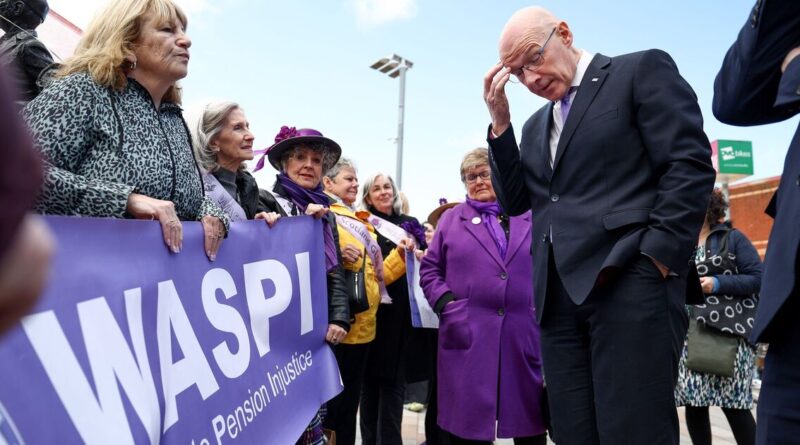WASPI protesters issue update as key date looms | Personal Finance | Finance
The Women Against State Pension Inequality (WASPI) campaign is set to make waves with a major protest in Parliament Square on Wednesday, October 30, strategically timed to coincide with the Labour Government’s Autumn Budget. MPs from all corners of the UK will converge to hear Chancellor Rachel Reeves deliver her first-ever Budget speech.
From midday until 3pm, WASPI campaigners will be out in full force, demanding justice for the estimated 3.8 million women born in the 1950s who have been hit hard by changes to their State Pension age. The ‘WASPI can’t wait – compensate’ rally marks the latest push by the group to keep the heat on the government for a fair compensation scheme, following recommendations by the Parliamentary and Health Service Ombudsman (PHSO) in its damning report released on March 21.
Despite fervent calls over the last six months from numerous cross-party MPs, including several Labour MPs during their stint in opposition, no remedial schemes have been laid before Parliament.
In a significant move, WASPI leaders, spearheaded by Chair Angela Madden, engaged in talks with Pensions Minister Emma Reynolds in the previous month.
Ms Madden hailed the meeting a historic first between the DWP and WASPI as “the start of something” in the relentless fight for ‘fair and fast compensation’ for those affected by the pension age hike, according to the Daily Record.
Last month, WASPI representatives, including Chair, Angela Madden, met Pensions Minister Emma Reynolds in a private meeting. In a later interview on BBC Breakfast Ms Madden spoke of the the near 10-year campaign for compensation and made a firm commitment to carry on the battle for redress amongst all women impacted by the alterations to their State Pension age.
The campaign has been caught in limbo with the enforced break due to the parliamentary summer recess followed by the party conference recess. Parliamentary activities resume on Monday, October 7, which will reopen with DWP oral inquiries at the Commons.
Attention may primarily home in on the regulatory amendments to Winter Fuel Payment eligibility, yet WASPI campaigners hope that at the very least one Member of Parliament will broach the contentious issue of State Pension justice for women born in the 1950s.
Only last month, Tory stalwart Sir John Hayes made an appeal to the Department for Work and Pensions, urging the establishment of a “hardship fund for women affected by the change to the State Pension age”. However the Pensions Minister insised the most efficient approach to assist individuals, including women hit by the State Pension Age modification, is through aiding them to ‘ retrain, return to or progress’ in work.
The Minister offered further clarification in a written response to Sir John earlier this week, stating: “For those women who are unable to work but who are not eligible for pensioner benefits because of their age, financial support is still available through the welfare system.”
State Pension age compensation explained
The Ombudsman slammed the Department for Work and Pensions (DWP) for ‘maladministration’ after it failed to adequately inform women that their State Pension age would rise from 60 to 65, and subsequently to 66. Figures from the Office for National Statistics (ONS) reveal that around 3.5 million women born in the 1950s have been hit by the hike in the retirement age.
In a damning report, the Parliamentary and Health Service Ombudsman (PHSO) declared that “Parliament must urgently identify a mechanism for providing that appropriate remedy” and called for compensation on the scale of Level four, which amounts to between £1,000 and £2,950.
Wendy Chamberlain MP, deputy leader of the Scottish Liberal Democrats, put forward an Early Day Motion (EDM) on July 17, garnering the support of 90 MPs, predominantly from her own party. This states: “That this House notes with concern the losses borne by 1950s women as a result of maladministration by the Department for Work and Pensions; welcomes the findings of the independent inquiry of the Parliamentary and Health Service Ombudsman; further notes that on average over 100 1950s born women die daily, many of whom have suffered losses and die without compensation; and urges the Government to honour the recommendations of the Ombudsman, and come forward with a proper plan to compensate these women.”





